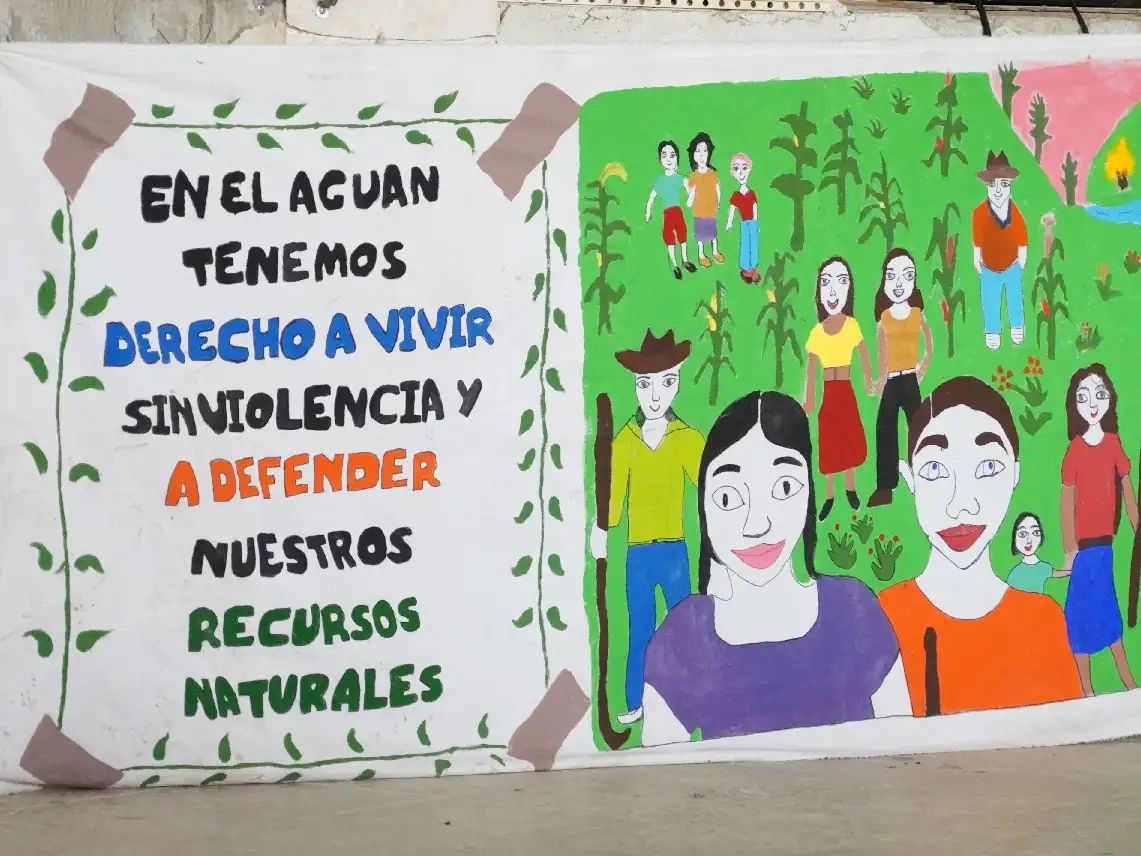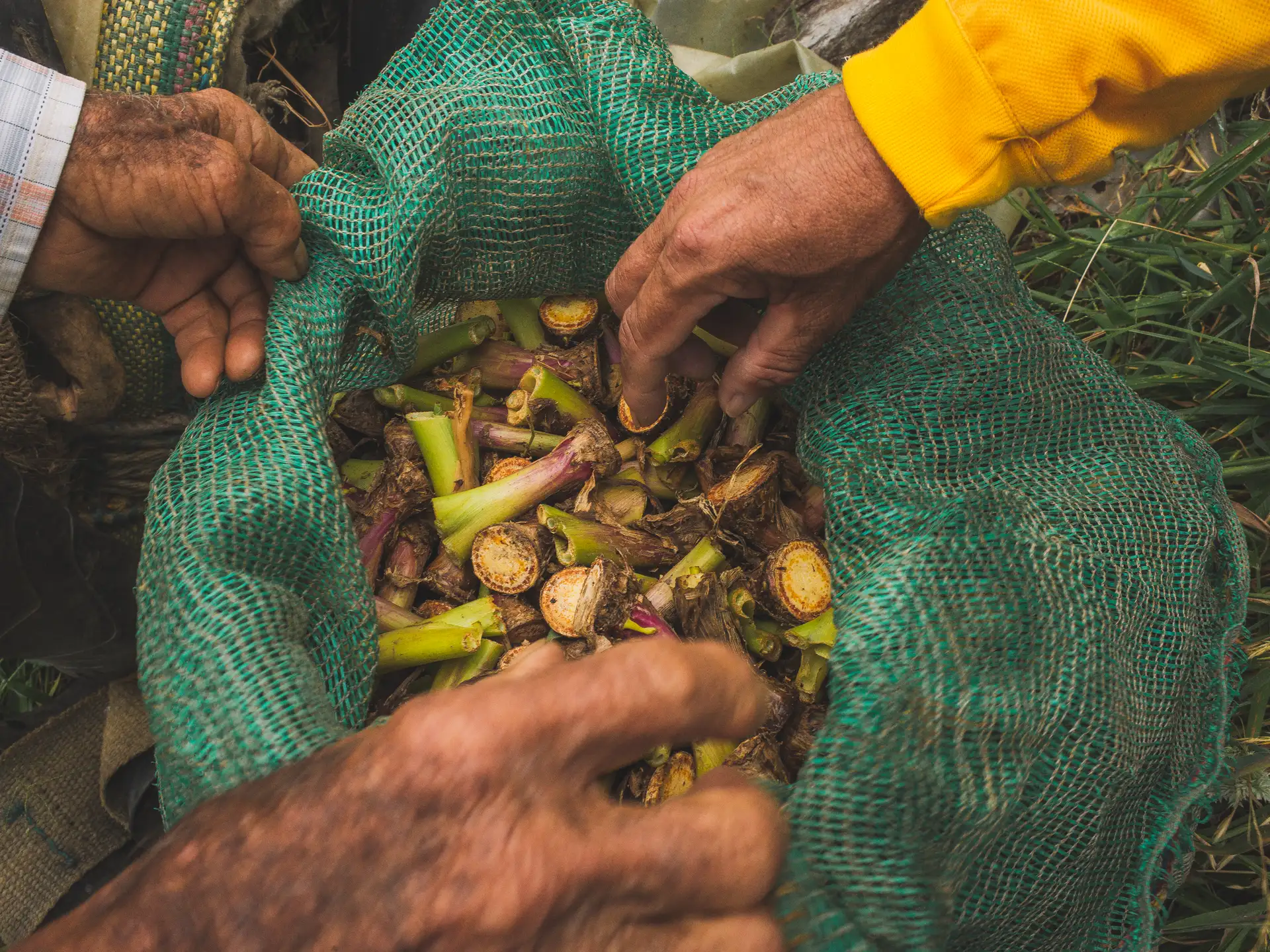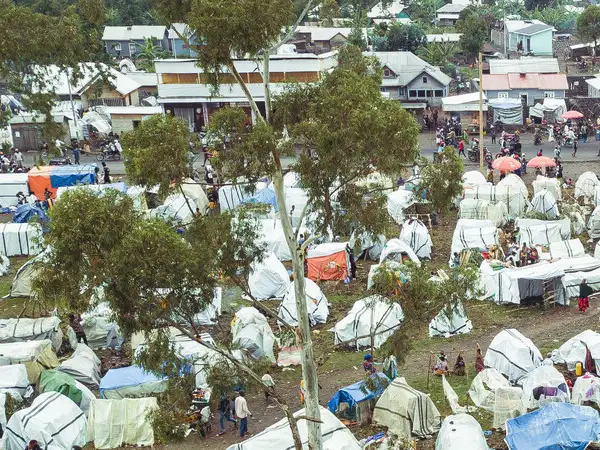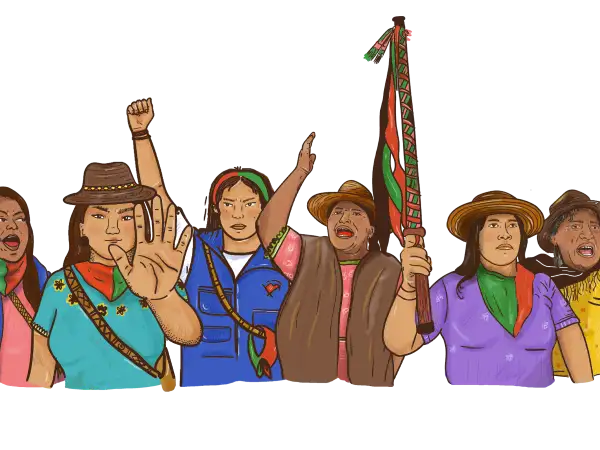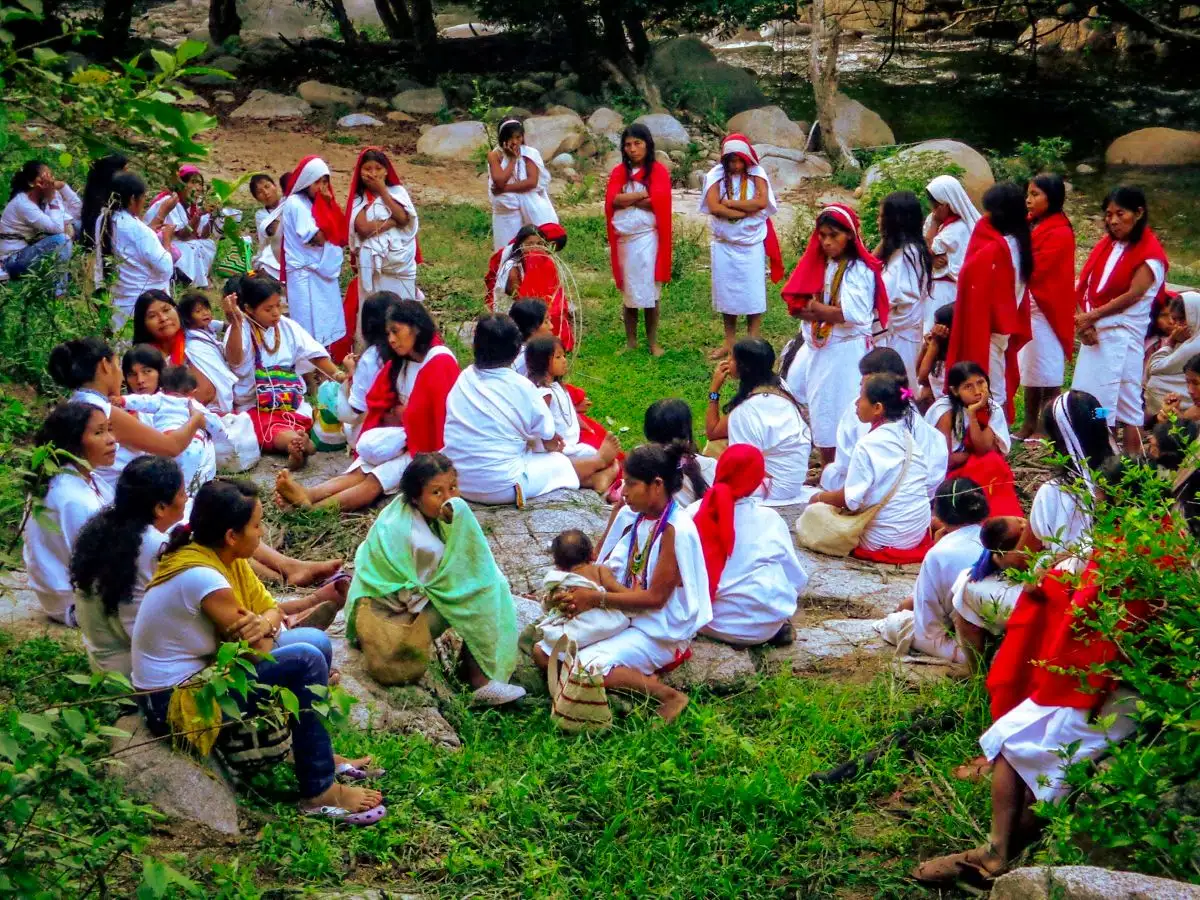

Wiwa peoples in Colombia traditionally dress in white
More than 60 years of internal armed conflict has affected millions of people in Colombia – especially people from Indigenous, small-scale farming and Afro-Colombian communities.
The conflict between the Colombian government and the then-largest guerrilla group, the Revolutionary Armed Forces of Colombia (FARC), officially began in 1964. In 2016, a historic peace accord was signed between the government and FARC.
However, the conflict endures, now increasingly fragmented and complex, involving other guerilla and dissident groups, paramilitaries and criminal gangs. Armed groups continue to use violence to control people’s lives.
According to the Colombian Truth Commission, 450,664 people were killed in the armed conflict between 1985 and 2018, although due to underreporting they estimate that the true number of people killed might be closer to 800,000. Killings and other human rights violations, including forced child recruitment, displacement and sexual violence, persist as the conflict endures. Between 2021 and 2024 forced recruitment of children by illegal armed actors increased by 1,000 per cent.
Colombia has one of the highest numbers of internally displaced people in the world: more than 8 million people have been forced to flee their homes in search of safety.
Colombia faces a complex humanitarian situation where natural disasters, armed conflict and the impacts of large-scale migration – often without adequate support – interact, making local communities extremely vulnerable. More than 16 million people remain in poverty in Colombia, mostly in remote rural areas, where extreme poverty is three times higher than in urban areas. Colombia is one of the most unequal countries worldwide, with Indigenous and Afro-Colombians disproportionately affected. It is also the most dangerous country in the world for human rights defenders.
A better world needs all of us. That’s why CAFOD has been working alongside communities in Colombia for more than 60 years. With your support, we’re focusing on addressing the root cause of the armed conflict, building peace and protecting the environment in the midst of conflict, natural disasters and climate change. In the UK we are also calling for effective legislation to ensure business linked to Colombia, particularly in the mining sector, respect human rights and the environment. We also urge the UK and the wider international community to maintain their support for peacebuilding efforts and for responding to humanitarian crises in Colombia.
Our impact in 2024
In 2024 we reached 7,930 people in Colombia.
We worked with over 430 environmental human rights defenders, including members of Afro-Colombian community councils, Indigenous community leaders, women human rights defenders and small-scale farmers, to protect their environment and the rights of their communities.
362 students and teachers in the Magdalena Medio region are putting into practice skills on conflict resolution, active listening and caring for Our Common Home.
175 indigenous women in three regions are seeking to prevent and address gender-based violence through advocacy, providing support to survivors and changing cultural attitudes.
CAFOD supported 495 families in Chocó after severe flooding through our partner Pastoral Social Quibdó. Families received first aid kits and emergency food to respond to the emergency.
Why CAFOD works in Colombia
Despite the historic 2016 peace accord, violence continues to plague Colombia, particularly affecting those who defend human rights and support vulnerable communities. Local populations, caught in conflict for over six decades, remain at risk and often require urgent humanitarian aid.
Although Colombia has made progress in reducing poverty, even amid the COVID-19 pandemic, it remains one of the most unequal countries in Latin America. Over 16 million people live in poverty (with some regions seeing rates of about 59 per cent). Structural inequality and racism continue to shape opportunities and basic rights. Access to education, healthcare, land and housing remains highly unequal, especially for Indigenous people, Afro-Colombians, women and young people. In many areas, the state’s presence is limited, often confined to security forces.
Root causes of conflict, including inequality and poverty, are exacerbated by illegal economies such as drugs, illegal mining and human trafficking. Gender-based violence, often carried out by armed groups, is widespread and rarely prosecuted. Many victims lack essential medical and legal services. The Catholic Church continues to play a vital role in peacebuilding, offering support and advocacy in conflict zones reached by few others.
Meanwhile, the climate crisis compounds humanitarian needs. Communities face displacement due to both violence and natural and climate-related disasters like floods and landslides. Colombia also hosts millions of Venezuelan migrants, intensifying its humanitarian crisis.
Despite Colombia’s rich biodiversity and vital ecosystems, extractive industries often bring environmental harm and human rights abuses. Defenders of peace and nature, especially local leaders, are frequently targeted. Colombia remains the deadliest country for human rights defenders: in 2024 alone, nearly half of the world’s killings were recorded there.
How we’re responding
Our partners are supporting poor rural, Indigenous and Afro-Colombian communities to learn more about their human rights, how to defend their environment and how to build peace. We’re working with our partner organisations to support small-scale farmers, Afro-Colombian communities and Indigenous people in the unique ecosystem of the Sierra Nevada de Marta Santa Marta in the highly biodiverse Chocó region, in the foothills of the Amazon and other regions, to take collective action to protect land and water sources.
Indigenous communities are passing on ancestral knowledge to younger generations as well as learning more about techniques to protect their land rights, cultural rights and their environment, which has significant spiritual value such as learning how to use drones to monitor their territory.
We continue to support the work of the Church in the Colombian Amazon. Local communities are learning more about their rights and the importance of caring for the Amazon in the face of widespread deforestation, threats from extractive industries like mining and logging, and the impact of climate change.
Our partners across Colombia are documenting human rights abuses relating to the ongoing armed conflict, mining and gender-based violence, as well as the impacts of the climate crisis and other issues. This evidence is raised at local, national and international levels, including in the UK. CAFOD are calling on the UK government to ensure effective legislation to ensure UK businesses with ties to Colombia respect human rights and the environment.
We are working with partners to support peace at community level by promoting dialogue, strengthening social cohesion, raising awareness about human rights and land rights, so that the poorest and most vulnerable members of the community participate in deciding on what happens in their territory.
We are supporting partners who are contributing to a culture of peace and the importance of caring for our Common Home. Young people, parents and teachers are learning more about peaceful conflict resolution, how to manage emotions and how to live in harmony with the environment. Peace education is a key element to prevent forced recruitment of children and young people, which is on the rise.
Women in rural areas, especially in areas of conflict, face even greater risks and higher levels of violence. In response to this, we work on issues of intersectional discrimination, for example women who are discriminated against as a result of their gender, ethnic background, geographic location and age. Indigenous women are participating in projects where, aside from strengthening their leadership skills, they raise awareness about gender-based violence and support survivors with psycho-social and psycho-spiritual support, as well as access to justice.
We’re working with communities affected by armed conflict and forced displacement, as well as climate-related emergencies, such as flooding and landslides. We’re applying local and Indigenous knowledge, as well as providing assistance like emergency food, water and sanitation items, depending on the crisis and the needs of the community. We’re also supporting communities to become better prepared for emergencies by developing emergency plans to consider risks and how to access necessary resources.
ABColombia
Centro Sociojurídico SIEMBRA
CINEP/PPP - Centro de Investigación y Educación Popular/Programa por la Paz
Corporación de Apoyo a Comunidades Populares (CODACOP)
Corporación de Desarrollo y Paz del Magdalena Medio (CDPMM)
Fundación Instituto para la Construcción de la Paz (FICONPAZ)
FUNVIPAS-Fundación de la Diocesis de San Vicente para la Pastoral Social
Pastoral Social Diocesis de Quibdó
Secretariado Nacional de Pastoral Social/Caritas Colombiana (SNPS/CC)
Pastoral Social del Vicariato Apostólico de Puerto Leguízamo – Solano
News from Colombia
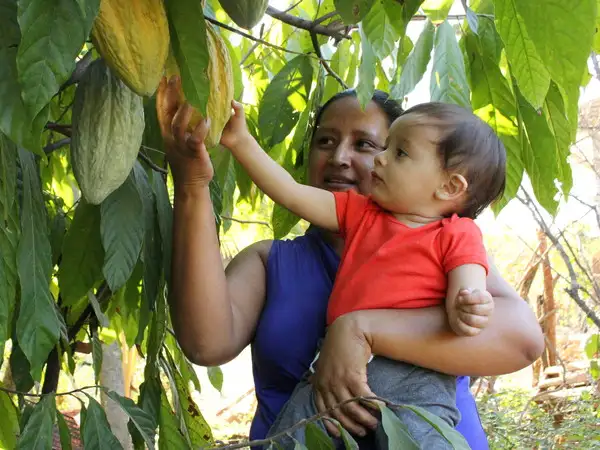
What we do
CAFOD is the official aid agency for the Catholic Church in England and Wales.
With your help, we reach out to people living in hard-to-reach places, in war zones and those who are discriminated against.


